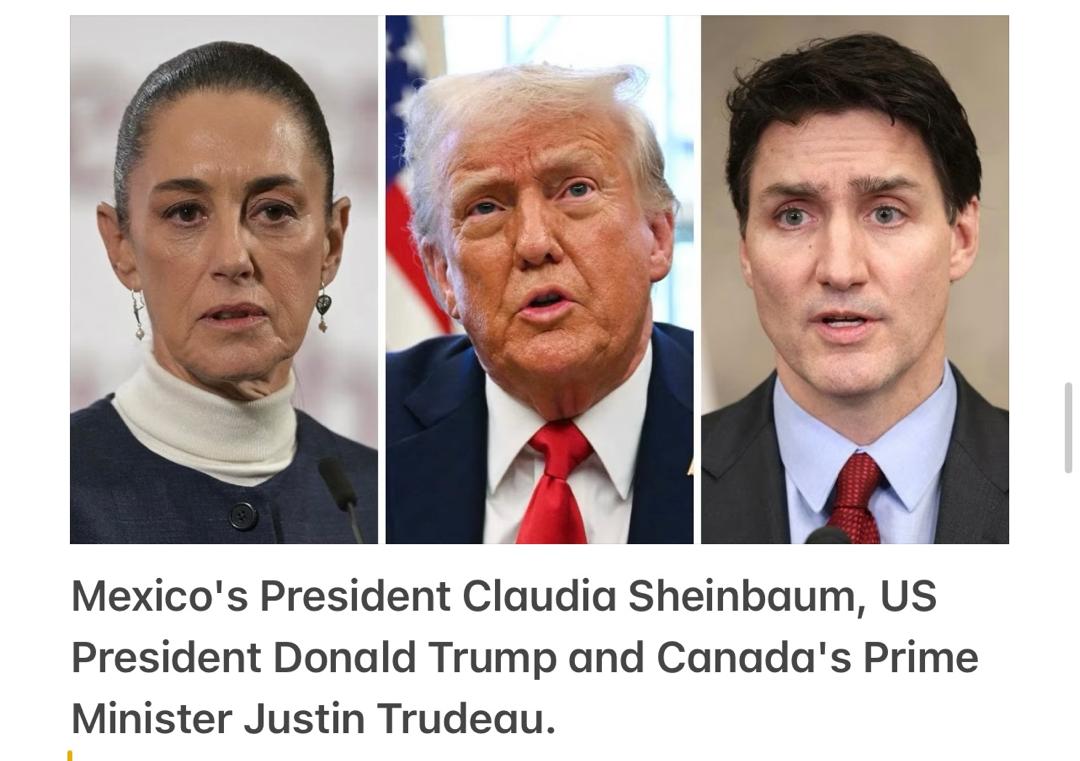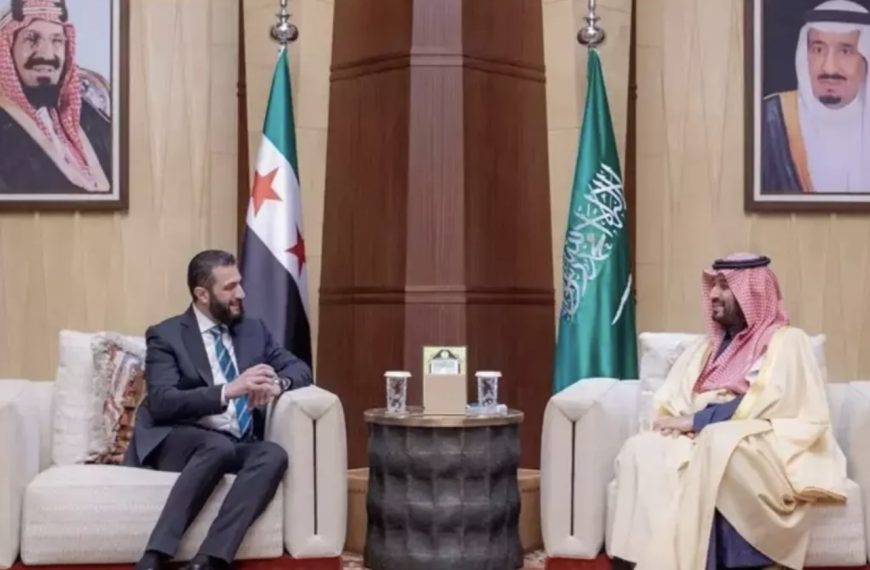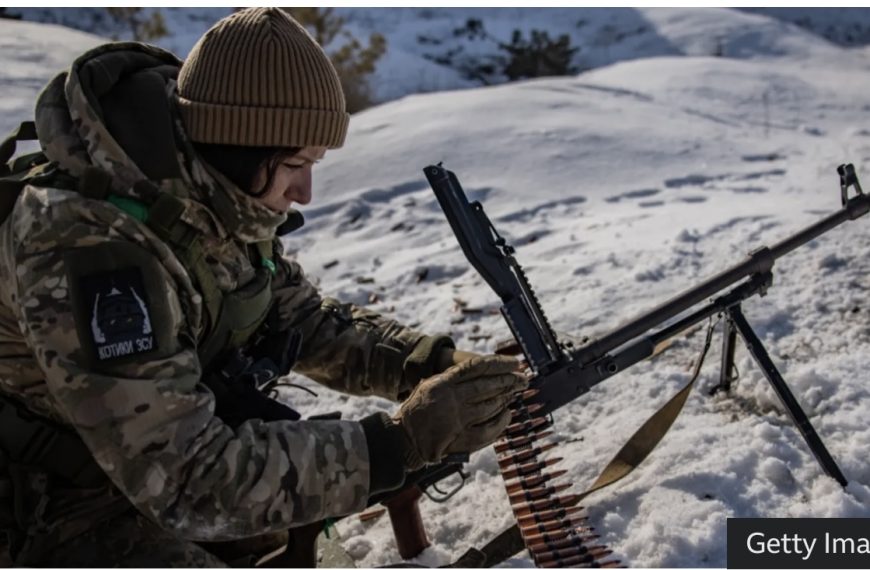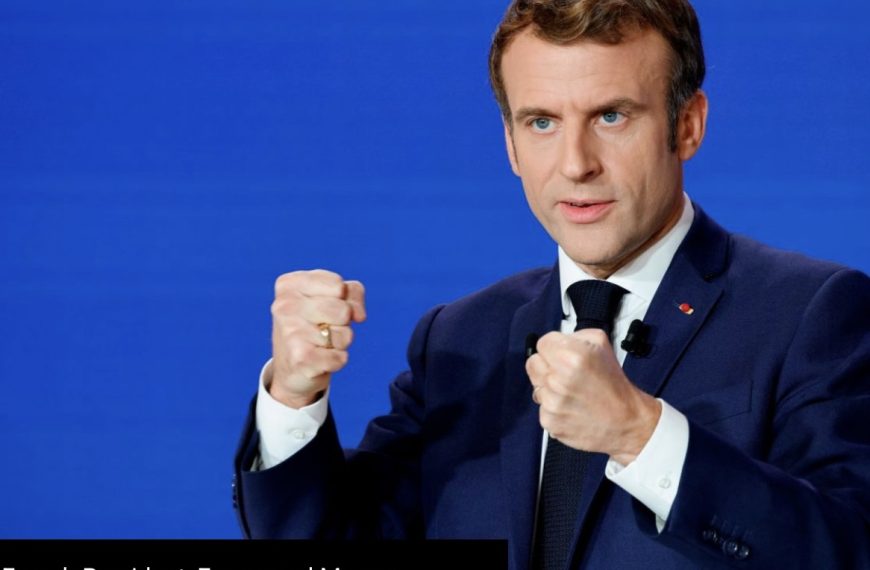President Donald Trump announced that he’s pausing tariffs on Mexico and Canada after speaking to leaders of both countries on Monday — just hours before the sweeping actions were set to go into effect.
The proposed tariffs, which Trump announced Saturday, consisted of a 25% duty on all imports from Mexico and most from Canada (there was a carve-out for a 10% tariff on energy products), and a new 10% tariff on Chinese goods. Trump said earlier that he’d be speaking with China soon.
Trump paused the tariffs on America’s neighbors after Mexican President Claudia Sheinbaum and Canadian Prime Minister Justin Trudeau made commitments, some of which they’d already made, to bolster security at their respective borders with the United States.
“I just spoke with President Claudia Sheinbaum of Mexico. It was a very friendly conversation wherein she agreed to immediately supply 10,000 Mexican Soldiers on the Border separating Mexico and the United States,” Trump wrote
“These soldiers will be specifically designated to stop the flow of fentanyl, and illegal migrants into our country,” he wrote.
He took to Truth Social with a similar announcement later in the day, after Trudeau first announced the 30-day pause.
“Canada has agreed to ensure we have a secure Northern Border, and to finally end the deadly scourge of drugs like Fentanyl that have been pouring into our Country, killing hundreds of thousands of Americans, while destroying their families and communities all across our Country,” Trump posted.
After his call with Trump, Trudeau said Canada would be implementing its previously announced $1.3 billion border plan, as well as committing to appointing a “fentanyl czar” and listing cartels as terrorists.
The extraordinary tariff announcement over the weekend against America’s three largest trading partners had raised alarm even among some corners of Trump’s own party and sent shockwaves through the North American economy, rattling businesses and the markets and delivering uncertainty to consumers who are still reeling from years of high inflation.
And Trump’s tariff promises had also already kicked off a trade war. Canada ordered retaliatory tariffs, and China said it would “take necessary countermeasures.”
Trump’s executive orders that put tariffs into motion included a retaliation clause, which indicated that America could launch even steeper tariffs and raise costs even further. The president has also suggested another round of tariffs later this month, perhaps on other countries.
But even Trump, a longtime proponent of tariffs, acknowledged on Sunday what economists, members of Congress and even some of his own aides — in their previous lives — have warned: Americans could pay the cost of the new tariffs.
Economists have said that the North American tariffs, should they materialize, would swiftly send the Canadian and Mexican economies into recession and likely lift consumer prices for Americans on cars, gasoline, lumber and other imported items.
The Dow tumbled nearly 600 points at the opening bell, but news of the agreement with Mexico sent stocks on the verge of a comeback.
Trump shrugged off the market reaction on Monday, suggesting to the reporters in the Oval Office that he wasn’t aware of the volatility. “I don’t know. I don’t think about it,” he said.
The Wall Street Journal had delivered a blistering critique of the Trump tariffs in a weekend editorial entitled: “The dumbest trade war in history.”
When asked the about market reaction — and the Wall Street Journal’s editorial — Trump demurred on Monday when signing executive actions in the Oval Office.
“Not only is it not dumb, you’re going to see, you’re going to see every single one of those countries is dying to make a deal,” he said, sitting feet away from Rupert Murdoch, whose newspaper empire includes the Journal.
The pause in the tariffs on Mexico was praised by Iowa GOP Sen. Chuck Grassley, who is pleading with Trump to exempt potash from tariffs because of the potential impact to Iowa family farmers, whom he said get majority of the fertilizer from Canada.
“Good news on Mexico tariff pause for 1 month,” Grassley posted on X on Monday. “Hopefully negotiating will preempt more talk of tariffs.”
Maine Sen. Susan Collins, a Republican and frequent Trump critic, had also warned about tariffs on Canada, writing on X that it’s Maine’s “most important trading partner.”
Republican Sen. Mitch McConnell, the former GOP Senate leader, had criticized Trump’s tariff measures in an interview that aired on CBS’ “60 Minutes”
“It will drive the cost of everything up. In other words, it will be paid for by American consumers,” the Kentucky senator said. “I mean, why would you want to get in a fight with your allies over this?”
BBCTrump says he agreed to pause tariffs on Mexico and Canada for one month
President Donald Trump announced that he’s pausing tariffs on Mexico and Canada after speaking to leaders of both countries on Monday — just hours before the sweeping actions were set to go into effect.
The proposed tariffs, which Trump announced Saturday, consisted of a 25% duty on all imports from Mexico and most from Canada (there was a carve-out for a 10% tariff on energy products), and a new 10% tariff on Chinese goods. Trump said earlier that he’d be speaking with China soon.
Trump paused the tariffs on America’s neighbors after Mexican President Claudia Sheinbaum and Canadian Prime Minister Justin Trudeau made commitments, some of which they’d already made, to bolster security at their respective borders with the United States.
“I just spoke with President Claudia Sheinbaum of Mexico. It was a very friendly conversation wherein she agreed to immediately supply 10,000 Mexican Soldiers on the Border separating Mexico and the United States,” Trump wrote
“These soldiers will be specifically designated to stop the flow of fentanyl, and illegal migrants into our country,” he wrote.
He took to Truth Social with a similar announcement later in the day, after Trudeau first announced the 30-day pause.
“Canada has agreed to ensure we have a secure Northern Border, and to finally end the deadly scourge of drugs like Fentanyl that have been pouring into our Country, killing hundreds of thousands of Americans, while destroying their families and communities all across our Country,” Trump posted.
After his call with Trump, Trudeau said Canada would be implementing its previously announced $1.3 billion border plan, as well as committing to appointing a “fentanyl czar” and listing cartels as terrorists.
The extraordinary tariff announcement over the weekend against America’s three largest trading partners had raised alarm even among some corners of Trump’s own party and sent shockwaves through the North American economy, rattling businesses and the markets and delivering uncertainty to consumers who are still reeling from years of high inflation.
And Trump’s tariff promises had also already kicked off a trade war. Canada ordered retaliatory tariffs, and China said it would “take necessary countermeasures.”
Trump’s executive orders that put tariffs into motion included a retaliation clause, which indicated that America could launch even steeper tariffs and raise costs even further. The president has also suggested another round of tariffs later this month, perhaps on other countries.
But even Trump, a longtime proponent of tariffs, acknowledged on Sunday what economists, members of Congress and even some of his own aides — in their previous lives — have warned: Americans could pay the cost of the new tariffs.
Economists have said that the North American tariffs, should they materialize, would swiftly send the Canadian and Mexican economies into recession and likely lift consumer prices for Americans on cars, gasoline, lumber and other imported items.
The Dow tumbled nearly 600 points at the opening bell, but news of the agreement with Mexico sent stocks on the verge of a comeback.
Trump shrugged off the market reaction on Monday, suggesting to the reporters in the Oval Office that he wasn’t aware of the volatility. “I don’t know. I don’t think about it,” he said.
The Wall Street Journal had delivered a blistering critique of the Trump tariffs in a weekend editorial entitled: “The dumbest trade war in history.”
When asked the about market reaction — and the Wall Street Journal’s editorial — Trump demurred on Monday when signing executive actions in the Oval Office.
“Not only is it not dumb, you’re going to see, you’re going to see every single one of those countries is dying to make a deal,” he said, sitting feet away from Rupert Murdoch, whose newspaper empire includes the Journal.
The pause in the tariffs on Mexico was praised by Iowa GOP Sen. Chuck Grassley, who is pleading with Trump to exempt potash from tariffs because of the potential impact to Iowa family farmers, whom he said get majority of the fertilizer from Canada.
“Good news on Mexico tariff pause for 1 month,” Grassley posted on X on Monday. “Hopefully negotiating will preempt more talk of tariffs.”
Maine Sen. Susan Collins, a Republican and frequent Trump critic, had also warned about tariffs on Canada, writing on X that it’s Maine’s “most important trading partner.”
Republican Sen. Mitch McConnell, the former GOP Senate leader, had criticized Trump’s tariff measures in an interview that aired on CBS’ “60 Minutes”
“It will drive the cost of everything up. In other words, it will be paid for by American consumers,” the Kentucky senator said. “I mean, why would you want to get in a fight with your allies over this?”
BBCTrump says he agreed to pause tariffs on Mexico and Canada for one monthPresident Donald Trump announced that he’s pausing tariffs on Mexico and Canada after speaking to leaders of both countries on Monday — just hours before the sweeping actions were set to go into effect.The proposed tariffs, which Trump announced Saturday, consisted of a 25% duty on all imports from Mexico and most from Canada (there was a carve-out for a 10% tariff on energy products), and a new 10% tariff on Chinese goods. Trump said earlier that he’d be speaking with China soon.Trump paused the tariffs on America’s neighbors after Mexican President Claudia Sheinbaum and Canadian Prime Minister Justin Trudeau made commitments, some of which they’d already made, to bolster security at their respective borders with the United States.“I just spoke with President Claudia Sheinbaum of Mexico. It was a very friendly conversation wherein she agreed to immediately supply 10,000 Mexican Soldiers on the Border separating Mexico and the United States,” Trump wrote“These soldiers will be specifically designated to stop the flow of fentanyl, and illegal migrants into our country,” he wrote.He took to Truth Social with a similar announcement later in the day, after Trudeau first announced the 30-day pause.“Canada has agreed to ensure we have a secure Northern Border, and to finally end the deadly scourge of drugs like Fentanyl that have been pouring into our Country, killing hundreds of thousands of Americans, while destroying their families and communities all across our Country,” Trump posted. After his call with Trump, Trudeau said Canada would be implementing its previously announced $1.3 billion border plan, as well as committing to appointing a “fentanyl czar” and listing cartels as terrorists.The extraordinary tariff announcement over the weekend against America’s three largest trading partners had raised alarm even among some corners of Trump’s own party and sent shockwaves through the North American economy, rattling businesses and the markets and delivering uncertainty to consumers who are still reeling from years of high inflation.And Trump’s tariff promises had also already kicked off a trade war. Canada ordered retaliatory tariffs, and China said it would “take necessary countermeasures.” Trump’s executive orders that put tariffs into motion included a retaliation clause, which indicated that America could launch even steeper tariffs and raise costs even further. The president has also suggested another round of tariffs later this month, perhaps on other countries.But even Trump, a longtime proponent of tariffs, acknowledged on Sunday what economists, members of Congress and even some of his own aides — in their previous lives — have warned: Americans could pay the cost of the new tariffs.Economists have said that the North American tariffs, should they materialize, would swiftly send the Canadian and Mexican economies into recession and likely lift consumer prices for Americans on cars, gasoline, lumber and other imported items.The Dow tumbled nearly 600 points at the opening bell, but news of the agreement with Mexico sent stocks on the verge of a comeback.Trump shrugged off the market reaction on Monday, suggesting to the reporters in the Oval Office that he wasn’t aware of the volatility. “I don’t know. I don’t think about it,” he said.The Wall Street Journal had delivered a blistering critique of the Trump tariffs in a weekend editorial entitled: “The dumbest trade war in history.”When asked the about market reaction — and the Wall Street Journal’s editorial — Trump demurred on Monday when signing executive actions in the Oval Office.“Not only is it not dumb, you’re going to see, you’re going to see every single one of those countries is dying to make a deal,” he said, sitting feet away from Rupert Murdoch, whose newspaper empire includes the Journal.The pause in the tariffs on Mexico was praised by Iowa GOP Sen. Chuck Grassley, who is pleading with Trump to exempt potash from tariffs because of the potential impact to Iowa family farmers, whom he said get majority of the fertilizer from Canada.“Good news on Mexico tariff pause for 1 month,” Grassley posted on X on Monday. “Hopefully negotiating will preempt more talk of tariffs.”Maine Sen. Susan Collins, a Republican and frequent Trump critic, had also warned about tariffs on Canada, writing on X that it’s Maine’s “most important trading partner.”Republican Sen. Mitch McConnell, the former GOP Senate leader, had criticized Trump’s tariff measures in an interview that aired on CBS’ “60 Minutes” “It will drive the cost of everything up. In other words, it will be paid for by American consumers,” the Kentucky senator said. “I mean, why would you want to get in a fight with your allies over this?”BBC












